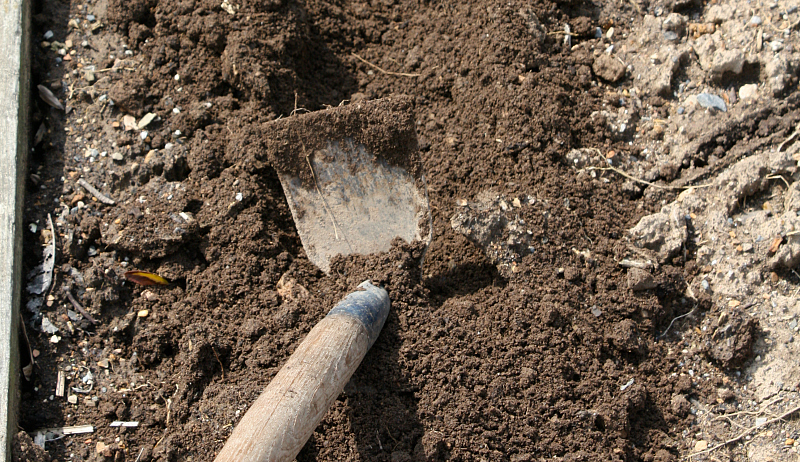Mr. Kunle Awobodu, the immediate past president of the Nigeria Institute of Building (NIOB), has denounced the growth of the soil testing industry in the housing market, claiming it is one of the main causes of the nation’s frequent building collapses or structural failures.
According to him, with prevalent of cheap and fake soil tests in the industry, structural design based on such geotechnical reports could lead to structural failure.
Speaking during the 2022 EGR (Dr) T.M Olatunji Distinguished Annual Lecture organised by the Nigerian Institution of Civil of Civil Engineer in Lagos, Awobodu, pointed out that symbiotic relationship existed between geotechnics and design of structures.
He explained that reports of subsoil investigation were used for the design of foundations and that, if information supplied from the soil-test’s field was inaccurate, calculations and analysis of the geotechnical engineer would not be correct.

In his presentation on “The Role of Professionals in the Prevention of Building Collapse in Nigeria”, where participants comprised frontline engineers, builders, town planners and professionals under the auspices of Building Collapse Prevention Guild (BCPG), Awobodu said it was high time for professionals to take action to halt building collapse’s incidents in the country rather than prolonged talks.
Findings by Nigerian Tribune show that no fewer than 508 buildings collapsed in Nigeria between October 1974 and July 13, 2022.(48 years).
Out of this, Lagos State recorded 320 building collapse’s incidents during the period.
This means that Lagos State accounts for 63 per cent of collapsed buildings in Nigeria, despite its small land area.
Building collapse is a global phenomenon, according to Awobodu, but that the frequency at which buildings collapsed in Nigeria had attracted a world-wide concern on the need to assist the country to improve on its safety performance.
Painting the sorry state of soil tests business in the country, Awobodu stated that prevalence of cheap and fake soil tests has forced prominent soil-test companies to fold up as they couldn’t compete in an unregulated business.
He said: “The importance of soil test in the prevention of building failure made the Reis-led Technical Committee recommended compulsory soil test on sites of two- storey buildings and above. But what the committee did not envisage was the unintended creation of jobs for charlatans.
“Prevalence of cheap and fake soil tests forced prominent soil-test companies fold up. There was no way they could compete in an unregulated business.
“Unfortunately, since States’ Materials Testing Laboratories are directly involved in soil-test business, there exists no neutral government agency for soil-test standard regulation.”
According to Awobodu, observations from many soil-test sites have revealed insufficient accessories, uncalibrated Cone Penetrometer Test (CPT) machines, poorly taken Standard Penetrometer Tests (SPTs).
“In fact, N- values are usually forged as non-taking of SPT at regular or necessary intervals has become a norm,”he said.
Besides, he stated that there haven’t been any school or training centre for drillers that handle soil-test operations on sites, hence the trial and error approach.
The former NIOB President said “Most drillers nowadays avoid soil- test sites where thorough supervision is put in place. The drillers are always in a haste to complete subsoil investigation.
“Hence, a geotechnical borehole that is supposed to take minimum of 3 or 4 days to complete could be done by these ignorant drillers in one or two days.
“It is pathetic that the youths are not interested in strenuous work of drilling but immediate pecuniary gains.”
The unfortunate thing, Awobodu said was the fact that the number of experienced drillers had been depleted by old age or death, adding that souls of the energetic and seasoned drillers had rested in peace.
According to him, some have become debilitated by age, adding that seasoned drillers that could take SPT and also U-4 (undisturbed samples in cohesive strata with 4inches /100mm tube) at critical depth and formation are very thin on the ground.
“Laboratory tests on disturbed and undisturbed soil samples are hardly adequate. Sieve Analysis (Particle Size Distribution Curve), Quick UndrainedTriaxial Compression Test, Atterberg Limit Test, Oedometer Consolidation Test and Water Test have become a waste of time.
“Rising prices of diesel, transportation, spare parts, bentonite and change in other variables seem not to affect soil-test price.
“In essence, for many years, soil-test seems immune to inflation and, hence, the price remains stable. In those days, a driller worked with two assistants. But nowadays, a driller works with one assistant, even while taking SPT at a stratum as deep as 25m. Manually operated rigs (hand-rigs) have substituted percussion rigs at many soil-test sites.
“Some engineers and geologists, especially young ones, who are not gainfully employed, in connivance with unscrupulous drillers, do not hesitate to sign and seal soil test reports that were not supervised by them at a ridiculous fee. Yet qualified civil/ structural engineers that design buildings and developers are not suspicious. Under this circumstance, sub-soil investigation has become a mere formality.
“Unlike in the past, confirmatory soil tests have now become the vogue due to lack of trust, making clients spend double,” Awobodu stated.
Moreover, he added that prevalence of pile foundation failure in the future had been predicted due to substandard work encouraged by free entry and non-sanitisation of that sector.
To correct these anomalies in the sector, Awobodu urged the need for all professionals in the built environment to work cordially together, believing that when this happens, building safety would no longer elude the Nigerian society.
He commended the Ogun State Government for a memorandum of understanding signed with the Building Collapse Prevention Guild, Ogun State Chapter recently, saying that through that singular effort, the seemingly impossible synergy between built environment professionals in the public service and those in the private sector had become realistic.
According to him, barriers created by territory defense mentality have now been dissolved for the benefit of a collective attack on building collapse tendencies.
“Kudos to the government of the Gateway State for not placing revenue generation ahead of building and human safety,” he said.
He pointed out that many building owners and developers have tendency to circumvent building regulations, hence the need for professionals in the private sector to support colleagues in public service to overcome pessimism.
Awobodu said “Building safety can be achieved through reinvigorated determination and commitment on the part of all stakeholders.
“Very shortly, our generation will grow old and leave the stage for another. It is in the enlightened interest of professionals and the society not to hand over chaos, arbitrariness and liabilities to the next generation.
“We just must work together respecting everyone’s competencies so as not to endanger this generation and the coming ones.”
Source: Nigerian Tribune





